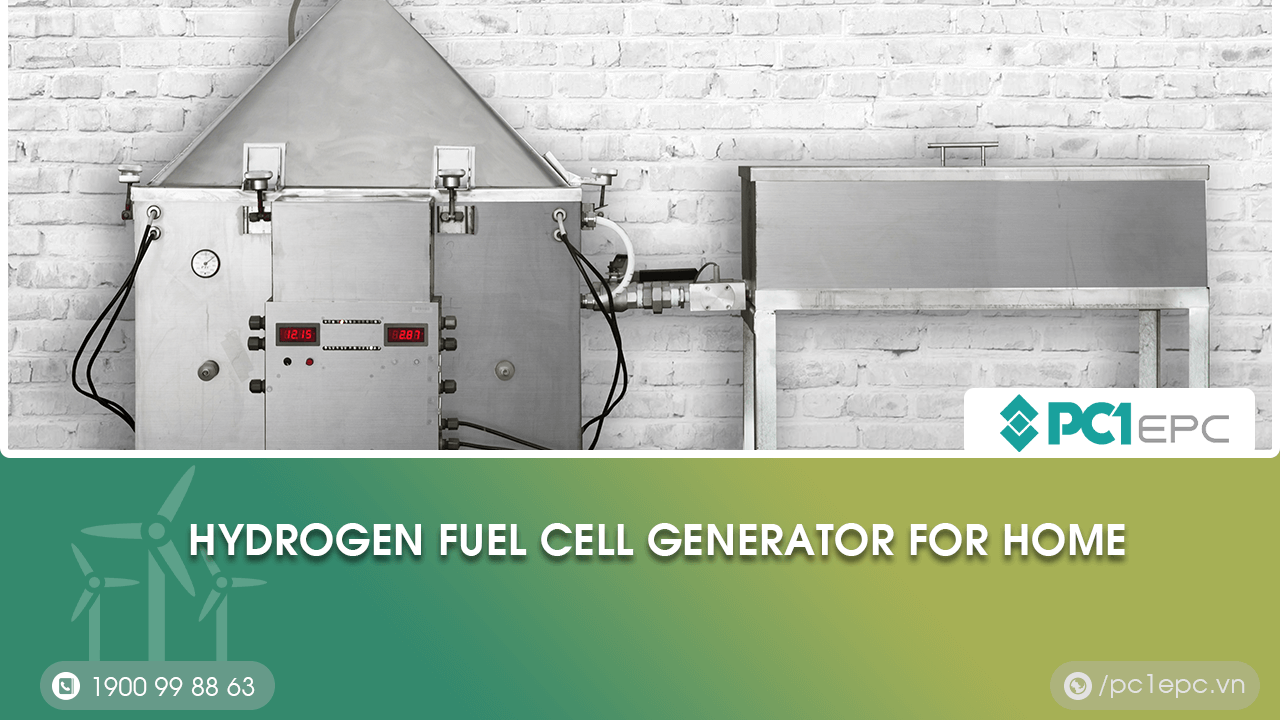Switch to an efficient and clean energy source with a hydrogen fuel cell generator for home. Power your household appliances and electronics while reducing carbon emissions. Learn about installation, maintenance, and cost considerations. Discover the future potential of renewable hydrogen production for widespread adoption. Explore the benefits of this innovative technology today.
Introduction to hydrogen fuel cell generator for home
Definition of hydrogen fuel cell generator for home
A hydrogen fuel cell generator for home is a device that converts the chemical energy stored in hydrogen fuel into electricity using a process known as electrolysis. The electricity generated by a hydrogen fuel cell generator can be used to power household appliances and electronics, and can also serve as a backup power source during emergencies.
Advantages of using a hydrogen fuel cell generator for home
There are several advantages to using a hydrogen fuel cell generator for home, including:
- Clean energy: Hydrogen fuel cells emit only water and heat, making them a clean and environmentally friendly energy source.
- Efficiency: Hydrogen fuel cells are more efficient than traditional combustion-based generators, with efficiencies of up to 60%.
- Quiet operation: Unlike traditional generators, hydrogen fuel cell generators operate silently, making them ideal for residential areas.
- Independence from the grid: Hydrogen fuel cell generators can provide a reliable source of power, even during power outages or in remote locations.
- Long lifespan: Hydrogen fuel cells have a long lifespan, with some models lasting up to 20 years.
- Flexibility: Hydrogen fuel cells can be used in a variety of applications, including as a source of power for homes, vehicles, and portable devices.
How does a hydrogen fuel cell generator work?
Explanation of the chemical reactions that occur inside a hydrogen fuel cell generator
A hydrogen fuel cell generator works by combining hydrogen and oxygen to produce electricity, with water as the only byproduct. The process involves several steps:
- Hydrogen gas is fed into the anode of the fuel cell, where it is split into protons (H+) and electrons (e-) through a process called electrolysis.
- The protons are then transferred through the proton exchange membrane (PEM) to the cathode.
- Meanwhile, the electrons flow through an external circuit, creating an electrical current that can be used to power devices.
- At the cathode, oxygen is introduced, and the protons and electrons combine with the oxygen to form water (H2O), which is then released as a byproduct.
Diagram or illustration of a hydrogen fuel cell generator
A diagram or illustration of a hydrogen fuel cell generator typically includes the following components:
- Anode: The electrode where hydrogen gas is introduced and undergoes electrolysis.
- Cathode: The electrode where oxygen is introduced and combines with the protons and electrons to form water.
- Proton Exchange Membrane (PEM): A membrane that separates the anode and cathode, allowing the protons to pass through while preventing the mixing of the hydrogen and oxygen gases.
- Electrolyte: A substance that conducts electricity, typically a liquid or gel that helps facilitate the chemical reactions inside the fuel cell.
- External Circuit: A pathway for the flow of electrons between the anode and cathode, creating an electrical current that can be used to power devices.
Applications of a hydrogen fuel cell generator for home
Powering household appliances and electronics
A hydrogen fuel cell generator for home can be used to power household appliances such as lights, refrigerators, and televisions. It can also be used to charge electronics such as laptops and smartphones.
Back-up power for emergencies
In the event of a power outage, a hydrogen fuel cell generator can provide reliable back-up power for essential appliances and electronics. It can also be used in natural disaster situations where power may be disrupted for an extended period of time.
Use in remote or off-grid locations
For those living in remote or off-grid locations, a hydrogen fuel cell generator can provide a reliable source of power without the need for traditional power infrastructure. This makes it an ideal solution for cabins, RVs, and boats.
Environmental impact of a hydrogen fuel cell generator for home
Comparison with traditional energy sources
When compared to traditional energy sources such as fossil fuels, a hydrogen fuel cell generator for home has a much smaller environmental footprint. Fossil fuels release large amounts of carbon dioxide and other harmful pollutants into the atmosphere, contributing to climate change and air pollution. In contrast, hydrogen fuel cells emit only water and heat, making them a cleaner alternative.
Reduction in greenhouse gas emissions
Hydrogen fuel cell generators for home have the potential to significantly reduce greenhouse gas emissions. By using hydrogen as a fuel source, the generation of electricity produces no carbon dioxide, which is a major contributor to global warming. This makes hydrogen fuel cells an attractive option for those looking to reduce their carbon footprint and minimize their impact on the environment.
Potential for renewable hydrogen production
Renewable hydrogen production is an important factor in the environmental impact of a hydrogen fuel cell generator for home. Currently, most hydrogen is produced using fossil fuels, which is not a sustainable option in the long term. However, there is potential for renewable hydrogen production through methods such as electrolysis, which uses electricity from renewable sources like wind or solar power to split water molecules into hydrogen and oxygen. This would make hydrogen fuel cells an even cleaner and more sustainable option for home energy generation.
Conclusion
In summary, a hydrogen fuel cell generator for home offers numerous benefits, including reliable and efficient power generation, reduced carbon emissions, and potential cost savings over time. With advancements in technology and renewable hydrogen production, there is significant potential for widespread adoption of this clean energy source in the future. As we continue to prioritize sustainability and environmental stewardship, the use of hydrogen fuel cell generators for home represents an important step forward.
Related post: Energy storage solution provided by PC1 Group


